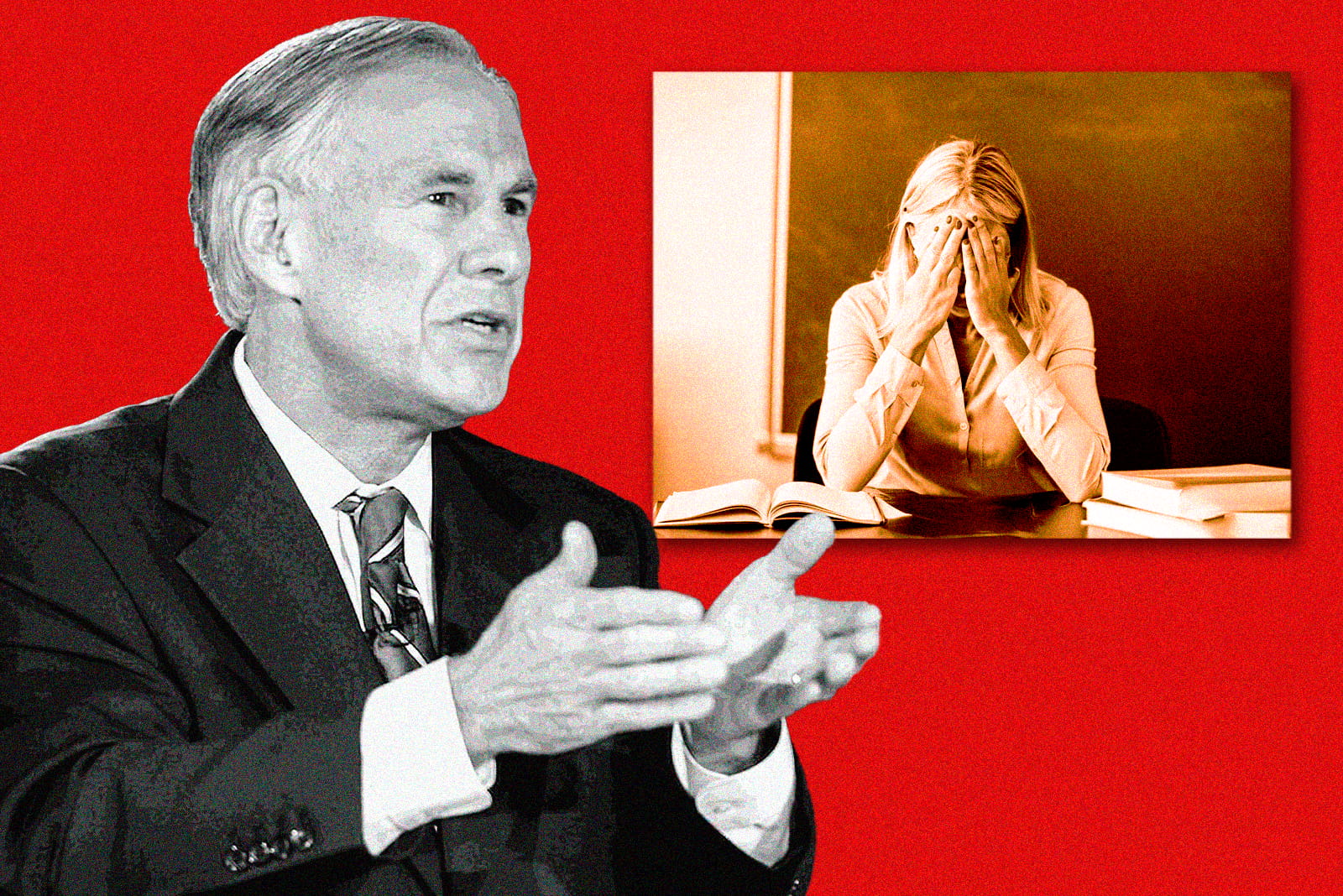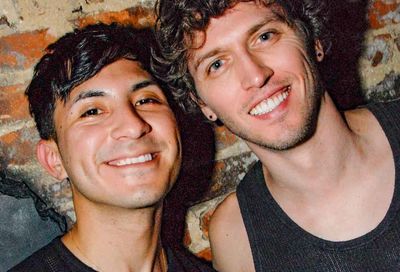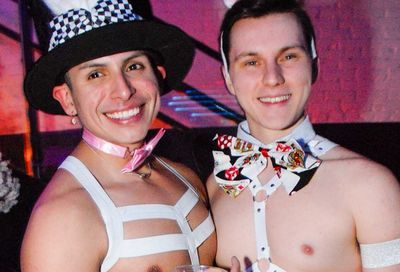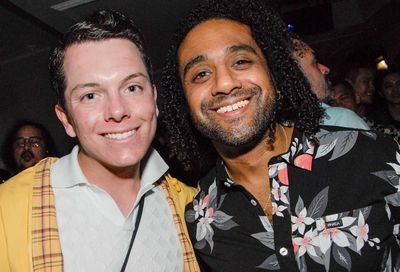Give a Hoot, Don't Recruit
UDC Law Students Protest Military Recruiters
When it comes to protesting the Pentagon’s ban on allowing gay and lesbian people to serve openly, law schools have been in the forefront. But while most law schools have tried to ban discriminatory employers from their campuses, nearly all have been unable to extend that ban to the military, although many have tried. That’s because Congress has attempted to ensure that any law school — and its parent university — doing so would lose all its federal funding.
Last Thursday, March 24, a group of students at the University of the District of Columbia David A. Clarke School of Law entered the debate. Simultaneously, two military recruiters entered the campus. In a large hallway outside the entrance to the law school, about 30 students staged the school’s first protest against military recruiters on campus.
“Be All That You Can Be…Except Queer,” read one student’s sign. “Don’t Ask, Don’t Tell, Don’t Recruit Here,” read another. The protest was rather subdued, with much of the two-hour action centered on a talk given by a World War II conscientious objector, who refused military service on religious grounds. The campus gay group OutLaw did not officially participate, though many of its members were present. The flavor of the event may have seemed primarily anti-military, but organizer Leah Golshani explained that protesting the military’s anti-gay recruiting policy was the single thing that those present could agree on. And it was to protest that policy that 50 students signed a petition sent to Mayor Anthony Williams and the D.C. City Council.
“We respectfully ask that the D.C. Council enact emergency legislation, request a temporary restraining order, or take any other action that the D.C. Council sees fit in order to bar this discriminatory and homophobic employer from our campus in accordance with the D.C. Human Rights Act,” the petition ends.
The heart of the matter may be boiled down to “right versus might.” Two court cases have found that the government’s tool for blocking funding to schools that hinder the military’s access to students in any way, known as the Solomon Amendment, is unconstitutional. The district, however, does not fall under the jurisdiction of either of these cases.
“There are multiple cases that challenge the constitutionality of the Solomon Amendment,” says Sharra Greer, director of law and policy at the Servicemembers Legal Defense Network, the D.C.-based group advocating on behalf of LGBT military members. “[Forum for Academic & Institutional Rights] v. Rumsfeld, that’s the one everyone talks about. The [U.S. Court of Appeals for the] Third Circuit made a decision in that case finding that it was unconstitutional. The government has filed for appeal to the U.S. Supreme Court.”
In the third circuit’s November 2004 decision, Circuit Judge Thomas Ambro concluded for the majority, in part, “The Solomon Amendment requires law schools to express a message that is incompatible with their educational objectives, and no compelling governmental interest has been shown to deny this freedom.”
Despite this decision, Greer explains that absent a Supreme Court ruling, UDC could face a lawsuit of its own if it banned military recruiters from campus because of the Pentagon’s anti-gay discrimination policies. Neither is it quite clear just who has the authority to bar such recruiters.
Though the students addressed their petition primarily to the City Council, the Council deferred to the mayor’s office. Kenneth Saunders, director of the D.C. Office of Human Rights, responded to Golshani on the mayor’s behalf.
“The OHR does not have jurisdiction over Federal Government agencies or entities such as the military JAG,” Saunders wrote, referring to the military’s legal branch, the Judge Advocate General. “In addition, this office will not interfere with JAG exercising its constitutional or First Amendment rights.”
Greer characterized Saunders’s letter as vague, but grants that indeed, the OHR does not have authority over federal agencies. Golshani also received a letter from Ken Howard of the mayor’s State Education Office. “It must be noted that a request for Mayor Williams to take action to uphold the D.C. Human Rights Act must first be reviewed by the D.C. Human Rights Office.”
Golshani says she is disappointed by the response. “We wanted to raise the argument that, given the tragic death of Wanda Alston, now is the perfect time to bring gay and lesbian issues to the forefront,” says Golshani, referring to the March 16 homicide of the mayor’s liaison to the LGBT community. “[The response] indicates they haven’t bothered to read the Third Circuit Court’s decision. The more I read [the OHR letter], the more it sounds so dismissive and condescending, that we don’t warrant a full explanation…. Now would’ve been a great time for the mayor to take a stand on discrimination based on sexual orientation, and they totally dropped the ball.”
But whether it’s the mayor’s call also seems to be somewhat in dispute. Shelley Broderick, dean of the law school, says it would be up to the school’s board of trustees to decide whether to risk the school’s federal funding by blocking military recruiters.
“There is the military blatantly discriminating against gays and lesbians. We won’t permit any organization that so discriminates to recruit on campus,” says Broderick, with the expected caveat. “But because of the Solomon Amendment, funding for this university — or any university — will be cut if JAG participation is cut…. It violates the D.C. Human Rights Act and our own tolerance policy. I’ve personally written a letter and put it in every students box saying we’re forced to do this.”
Broderick also says she appreciates that the student protest and ongoing debate has helped to educate the school’s students about the legal issues at hand, though it doesn’t appear the protest will be stirring anyone in authority to action. The seemingly best hope Golshani and her group have to closing the Solomon loophole lies with the Supreme Court, which is expected to eventually make a decision on FAIR v. Rumsfeld.
Broderick says she’s hopeful for such a ruling as well: “We can hardly wait, and I expect we’ll be out in full force to strike it down. I will be there.”
Support Metro Weekly’s Journalism
These are challenging times for news organizations. And yet it’s crucial we stay active and provide vital resources and information to both our local readers and the world. So won’t you please take a moment and consider supporting Metro Weekly with a membership? For as little as $5 a month, you can help ensure Metro Weekly magazine and MetroWeekly.com remain free, viable resources as we provide the best, most diverse, culturally-resonant LGBTQ coverage in both the D.C. region and around the world. Memberships come with exclusive perks and discounts, your own personal digital delivery of each week’s magazine (and an archive), access to our Member's Lounge when it launches this fall, and exclusive members-only items like Metro Weekly Membership Mugs and Tote Bags! Check out all our membership levels here and please join us today!























